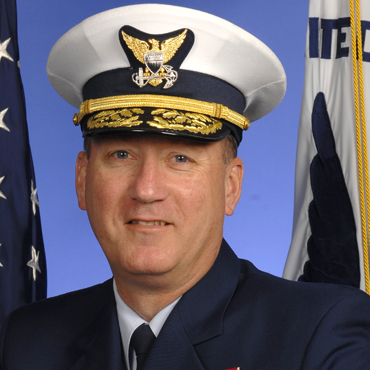DHS girds for fiscal 2016

Homeland Security officials talk priorities and possible pain points as budgets constrict yet again.

Coast Guard Rear Adm. Robert Day says DHS budgets will be at near-sequestration levels in the next fiscal year.
Budget, workforce and cybersecurity are the most pressing issues for the Department of Homeland Security's component agencies because DHS officials say fiscal 2016 budgets are set for more tightening.
Fiscal 2014 and 2015 might see some freer spending to buy new IT, but as Rear Adm. Robert Day, commander of the Coast Guard's Cyber Command and CIO, sees it, fiscal 2016 budgets will "take us back to almost sequestration" budgeting.
"The pain will come back," he said during an April 14 panel discussion on current and near-future funding for cybersecurity, mobile and emerging technology at DHS. The event was sponsored by AFCEA.
Wolf Tombe, chief technology officer at Customs and Border Protection, and other top DHS technology managers echoed those sentiments and said they had spent much of the past week developing fiscal 2016 budget plans ahead of the Office of Management and Budget's May 1 deadline.
Tombe said CBP is turning to IT programs to help mitigate the expected budget pressures. Cloud computing and other efforts to consolidate services can help, but he agreed that fiscal 2016 will likely be stressful. DHS budgets in "2016 will be a delight," he said facetiously.
DHS' research arm, the Homeland Security Advanced Research Projects Agency, is also planning on more belt-tightening, said Stephen Dennis, the agency's technical director. "We're like DARPA, only with not as much money," he quipped.
Although the financial outlook is bleak, DHS officials said they are pleased with efforts such as the Continuous Diagnostics and Mitigation program and cloud technology because they can offer some degree of relief. For example, the Coast Guard is moving its email service to the Defense Information Systems Agency's secure cloud network. However, Day said the savings from such projects are not enough to offset lower budgets.
Furthermore, the battle against cyberthreats will take up significant resources into the foreseeable future. "Heartbleed? We're going to see one of those every few months," Day warned. "It's a continuous cycle." But combining DHS and Coast Guard operations centers at DHS' new campus in Washington will help by putting shared resources and employees side-by-side, he added.
Tombe and Dennis said another nagging, long-term challenge is attracting talented employees. People entering the workforce in the next five years will have different expectations than those of their older colleagues, Tombe said, and DHS must appeal to those workers if it is to remain effective. He added that those changing demographics factored into CBP's plans to phase out BlackBerrys in favor of Android devices.
Dennis advised agencies to use their technologically unique capabilities to attract expert younger workers. He said HSARPA is using projects that crunch big data to attract talented, innovative employees.
NEXT STORY: Carey heading to CSC


